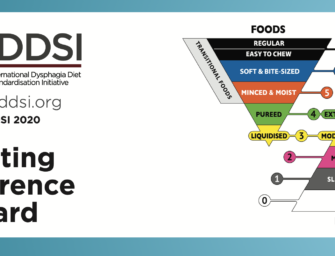How COVID-19 is affecting future Food Service Managers
Victoria Knight – Humber College Dietetic Intern & Burlodge Blog post winner
As the global pandemic took the world by storm, it changed life as we know it. Our day-to-day activities like grocery shopping have changed, our homes have become our workplaces, even our relationships with friends and loved ones look a little bit different. 2020 quickly became known as the year of social distancing, but the need for measures like that have not gone away just yet. According to the COVID-19 Dashboard by the Centre for Systems Science and Engineering (CSSE) at Johns Hopkins University (JHU), there are nearly 140 million global cases of the virus, and almost 3 million deaths. The numbers are staggering, and so is the impact that it continues to have on our businesses, education systems and economy. One area that continues to be directly and severely impacted by the pandemic is the health care and social assistance sector, with an emphasis on retirement and long-term care homes. In Canada, with a population of roughly 37.5 million people, the total count for COVID-19 cases as of April 2021 is just over 1 million, with the total Canadian deaths related to COVID-19 sitting at just over 23,000 and climbing. (Government of Canada, 2021). According to the National Institute of Ageing (NIA) at Ryerson University, as of January 2021, cases at retirement and long-term care homes accounted for 73% of the total Canadian COVID-19 related deaths. There is an urgency to keep our ageing and vulnerable population safe, and a large part of the responsibility has fallen on frontline staff and essential workers. From food handlers and grocery store staff to nurses and nutrition managers, we all play an important role in stopping the spread of the virus.
With hospitals, retirement homes and long-term care homes being affected by COVID-19 so greatly, the health care industry has presented an increasing need for willing individuals to accept work. In the last three months of 2020, employment opportunities in the health care sector rose by 56.9%, to an all time high of 100,300 job vacancies. (Statistics Canada, 2021)
As a recent college graduate of a CSNM accredited food and nutrition management program, I often wonder what my future as a food service supervisor or manager will look like. One thing I do know is that I will have to adapt quickly to the frequently changing conditions of the pandemic, whether that be by updating policies and procedures on the fly to accommodate newly announced regulations, or by spearheading new initiatives that look to further improve the patient and resident food experience during these difficult times. Whatever the task may be, I know that being flexible will be essential to anyone’s success.
Sometimes I think of all the things I have learned about COVID-19 protocols from afar. I have studied the need for increased hand hygiene, staff training, PPE use, limiting visitation, universal masking, cleaning, and disinfecting, screening, physical distancing and perhaps most importantly, testing for the sometimes-silent virus. (Public Health Ontario, 2020)
However, I fear I have never experienced these things firsthand, by working up-close and personal with people who are truly living through it, who may be sick, or who may be dying. The truth is, there is no statistic for how scared many of us are.
Although COVID-19 has caused worldwide concern, it has also taught us how to be hopeful in tough situations. I believe I am not alone when I say that I am hopeful there will be a brighter tomorrow. I am no longer as fearful about what to expect when I do begin working as a food service supervisor or manager, because I know that many industries have gone above and beyond the call to action, and many hospitals, retirement homes and long-term care homes have implemented new policies and procedures that help to protect patients, residents, and employees alike. In fact, many establishments have updated their emergency preparedness plans, rearranged their design or infrastructure to accommodate physical distancing, formed an outbreak management team, and continue to check temperatures of patients and residents’ multiple times per day. (Public Health Ontario, 2020)
For anyone who is like me and is about to begin the journey of working alongside COVID-19, whether that be in the food and nutrition industry, the health care sector or the many other areas affected, I hope we remain eager to become apart of a team who is actively involved in the fight against the virus. I hope we learn to lean on our colleagues, friends, and family for support. I hope we all look forward to being able to bring forth the skills and knowledge that we have learned over the course of our educational careers, past or current employment, or through the trials of everyday life, and apply them to the areas hardest hit by the pandemic. Personally, I am hopeful that my future career in food services during these challenging times will help shape me into an adaptable, compassionate, perceptive and, above all else, a brave nutrition manager.
COVID-19 has changed so many things and taken so much from many of us, however, one thing remains the same, and that is our ambitions, our goals, and our hopes and dreams for a brighter future. Even a worldwide pandemic could not take that from us.











